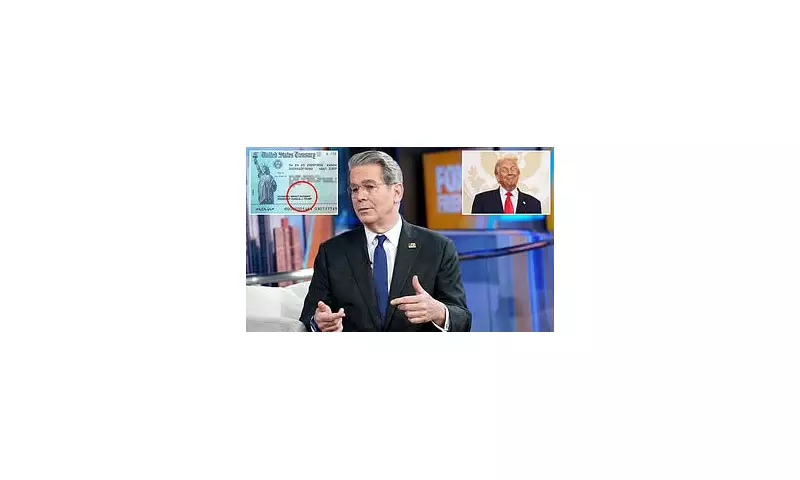
Plans from President Donald Trump's administration to send $2,000 cheques to American households, funded by tariff revenue, have hit a significant roadblock after his own Treasury Secretary indicated that Congressional approval would be necessary.
Treasury Secretary Pours Cold Water on Proposal
In a Sunday interview on Fox News, Treasury Secretary Scott Bessent delivered a sobering assessment of the White House's newest pitch. When asked by host Maria Bartiromo whether Americans should expect the payments, Bessent replied, 'We will see. We need legislation for that.'
This admission presents a major political hurdle, making the prospect of these 'tariff dividend' cheques being issued anytime soon highly unlikely. The White House has been scrambling to demonstrate it is addressing the pressure on household budgets, despite a raft of data showing that costs continue to soar for many families.
Economic Realities and Legislative Hurdles
The proposal faces challenges on multiple fronts. So far, only one lawmaker, Republican Senator Josh Hawley from Missouri, has proposed a similar payout. His bill, which would send Americans $600 of tariff-generated cash, has not yet left the Senate's Committee on Finance.
Furthermore, the financial viability of the plan is in question. By the end of October, the US had collected an estimated $195 billion in tariff revenue this year, a 250 percent jump from 2024. However, economists estimate that cutting $2,000 cheques would carry a staggering $300 billion to $400 billion price tag, depending on eligibility.
While President Trump has repeatedly insisted that 'foreign countries pay the tariffs,' economists argue that US importers actually foot the bill and often pass those costs directly to consumers. A recent analysis from Yale's Budget Lab found that current tariff policies are on track to cost the average household an extra $1,800 next year through higher prices.
Potential to Reignite Inflation and Legal Challenges
Even if Congress were to warm to the idea—a tall order given the partisan divisions on Capitol Hill—experts warn that injecting another round of cash into the economy could reignite inflation.
Researchers at the Federal Reserve Bank of St. Louis found that the pandemic-era stimulus payments pushed U.S. inflation higher by about 2.6 percentage points. A new programme of rebate cheques could have a similar effect, undermining the fight against rising costs.
Inflation has crept back up this year, landing at 3 percent in September. While this is far lower than the 9 percent peak under the Biden administration, it remains above the Federal Reserve's two percent target. Key items continue to squeeze budgets, with beef prices up 14 percent over the past year and electricity costs climbing 5.1 percent.
Compounding the issue, the White House is facing a looming Supreme Court decision that could challenge the President's authority to impose tariffs. A ruling against the administration could force the government to refund tariff payments to importers, wiping out the very revenue intended for the cheques.
As Columbia Business School professor Brett House told CNBC, 'I don’t think consumers should expect to see these rebate cheques.' For now, the promise of $2,000 remains just that—a promise contingent on a deeply uncertain political and economic landscape.





